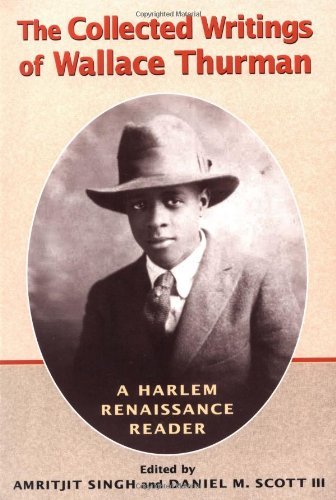What do you think?
Rate this book


This collection brings together all of Thurman’s essays, nearly all of his letters to black and white figures of the 1920s, and three previously unpublished major works: Aunt Hagar’s Children, which is a collection of essays, and two full-length plays, Harlem and Jeremiah the Magnificent. The introduction provides a challenging new reevaluation of Thurman and the Harlem Renaissance for both the general reader and scholar.
531 pages, Kindle Edition
First published August 1, 2003